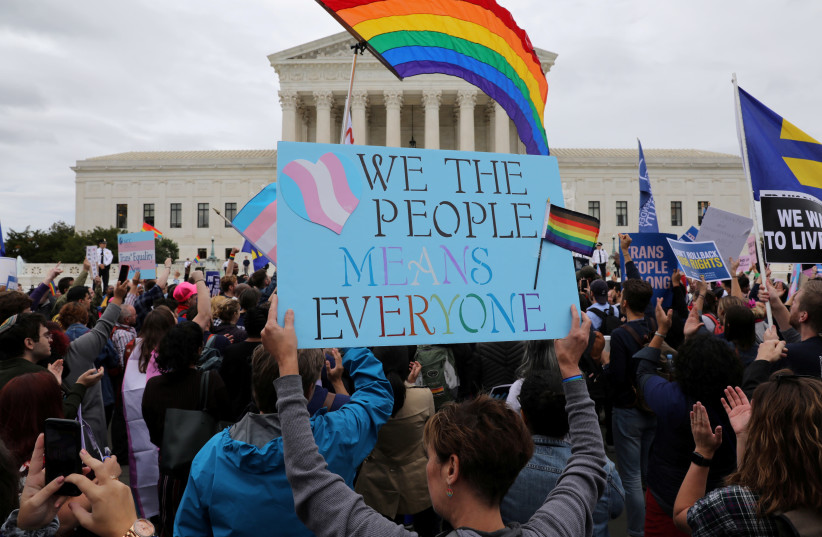Yeshiva University, ordered by a judge to formally recognize an LGBT student group even as the Jewish school in New York City argues that doing so would violate its religious values, on Friday announced that it has halted the activities of all its undergraduate student clubs as it plans its next steps.
Yeshiva's announcement came two days after the US Supreme Court refused to block New York state judge Lynn Kotler's June ruling that the university is subject to a city anti-discrimination law and must recognize the club called YU Pride Alliance.
Citing upcoming Jewish holidays, Yeshiva said in an email to students that "the university will hold off on all undergraduate club activities while it immediately takes steps to follow the roadmap provided by the US Supreme Court to protect YU's religious freedom."
"The YU administration’s announcement today that it will cancel all student club activities rather than accept one LGBTQ peer support group on campus is a throwback to 50 years ago when the city of Jackson, Mississippi closed all public swimming pools rather than comply with court orders to desegregate," tweeted the plaintiffs' team in response.
"The Pride Alliance seeks a safe space on campus, nothing more. By shutting down all club activities, the YU administration attempts to divide the student body, and pit students against their LGBT peers. We are confident that YU students will see through this shameful tactic and stand together in community."

Katie Rosenfeld, a lawyer for YU Pride Alliance, said in a statement she is confident that "students will see through this shameful tactic and stand together in community."
Rosenfeld called the university's move to cancel all student club activities rather than accept one LGBT group on campus "a throwback to 50 years ago when the city of Jackson, Mississippi closed all public swimming pools rather than comply with court orders to desegregate."
Yeshiva did not specify the steps it planned to take.
The Supreme Court's order, in a 5-4 decision with four conservative justices dissenting, said the school could ask New York courts to expedite its appeal and seek relief from them, then return to the justices if its requests were denied. The high court cited "at least two further avenues for expedited or interim state court relief."
The court discussion
Yeshiva's student club application process ended on Sept. 12. Y.U. Pride Alliance formed unofficially in 2018 but Yeshiva determined that granting it official status would be "inconsistent with the school's Torah values and the religious environment it seeks to maintain."
The dispute hinges in part on whether Yeshiva is a "religious corporation" and therefore exempt from the New York City Human Rights Law, which bans discrimination by a place or provider of public accommodation on the basis of sexual orientation, race, gender, age, national origin and some other factors.
The Modern Orthodox Jewish university, based in Manhattan, has roughly 6,000 students enrolled in undergraduate and graduate programs.
Jerusalem Post Staff contributed to this report.
